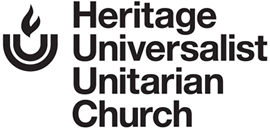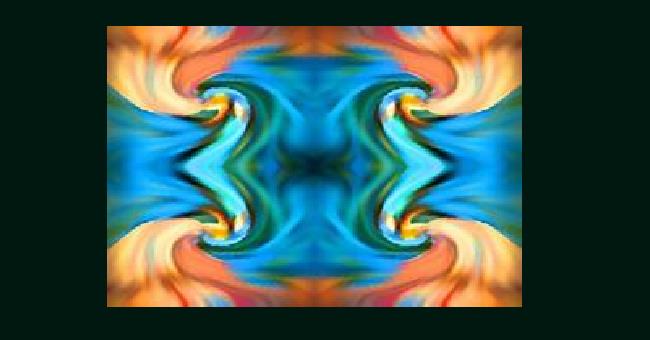Opinion
by Rebecca Pace, HUUC member
The well-worn phrase “history repeats itself” seems appropriate to me as I reflect on my experiences at the September 2024 Universalist Convocation. The gathering highlighted the differences between Universalists and Unitarians. I couldn’t help but draw parallels between the Universalist past and the recent activities within the UUA. Will the coming changes play out the same way as things did in the 1800s?
The Universalist Convocation was held at a lovely brick church, built in 1909, in a tiny farming community that was bypassed by time. On the way there, I drove past miles and miles of cornfields. It seemed the rural landscape probably hadn’t changed much in the last 150 years. As I thought about those early settlers, I was struck by how different the experience of the early Universalists was from early Unitarians.
Universalists, the hard-working farmers, knew life was hard. They understood the struggle to wrest a living from the fields. Universalists were independent thinkers. They were willing to give people freedom to choose their own way. They were forgiving and accepting. At our host church, one stained glass window featured the all-seeing eye of God, another showed Jesus himself sowing the fields. Universalists believed God would not be so cruel as to condemn people to everlasting punishment in hell.
The life of the urban Unitarians revolved around less strenuous, more cerebral occupations. They were acquainted with books and were well educated. They expected their neighbors to live within the norms of the day. They debated the nature of God and role of Jesus.
The union of these two branches of Christianity in 1961 was one of convenience, or perhaps necessity. Finances were uncertain; Universalist membership was declining. Early in the merger, many issues were resolved, but differences in local church governance remain, even today. There is a theory that one remaining difference may have played a significant role in the recent vote that the UUA abandon the Seven Principles.
At the recent Universalist Convocation, the keynote speaker focused on the Winchester Profession of Faith of 1803. Legalities had caught up to the Universalists. Without a profession of faith that identified them as a religion, their ministers could not legally perform marriages.
The Universalist Winchester Profession of 1803 gave congregations autonomy “. . . where the brethren cannot see alike, they may agree to differ.”1 As a result, traditional Universalists are rooted in years of trust and acceptance. At the 2024 UUA General Assembly, these traditional Universalists may have been lulled into the belief that the proposed Article II changes would not make a difference on the local level.
We will soon learn who was right. Additional revisions to the UUA Bylaws, beyond Article II, are in process. According to Rev. Connie Simon – a member of the Bylaws Revision Team, the proposed revisions are delayed beyond the scheduled winter of 2024 release date and will not be voted on at GA 2025. A release date has not currently been announced. UUA sources state that the bylaws changes will emphasize interdependence over individualism, trusting leadership over fear of authority, and decisions located organizationally, all based on the importance to the UUA mission.2
When developing the Winchester Profession of Faith of 1803, the Universalists did not want anything to bind them to a creed. The resulting Winchester Profession was intentionally vague and closed with the “Liberty Clause” (shown immediately below) that guaranteed each congregation’s freedom of interpretation.
“Yet while we, as an Association, adopt a general Profession of Belief and Plan of Church Government, we leave it to the several Churches and Societies, or to smaller associations of churches, if such should be formed, within the limits of our General Association, to continue, or adopt within themselves, such more particular articles of faith, or modes of discipline, as may appear to them best under their particular circumstances, provided they do not disagree with our general Profession and Plan.”3
In 1870, the Universalists, concerned that interest in Christianity was declining, revised their Profession and dropped the Liberty Clause. The once flexible Profession now appeared to be a creed. Only two years later in 1872, The Rev. Herman Bisbee was charged with heresy and de-fellowshipped from the Universalist Church for subverting Christianity. He was never given an opportunity to speak to his own defense.
The expulsion unleashed a firestorm of controversy. Multiple revisions to the Profession of Faith were proposed. It took 29 years for the liberty clause to be restored, although the creedal requirement was widely ignored in practice.
This Universalist history parallels the recent UUA controversy over the Seven Principles. It cannot be ignored. A few ministers have been removed from fellowship and some congregants have been expelled. Our new Values hold us accountable, similar to a creed. Yet, congregations are told they can continue to use the Seven Principles.
The convocation’s speaker held the opinion that the new Values are simply an evolution of the Principles, as Unitarians and Universalists have seen many times in the past. In fact, the Bylaws require us to review our Purpose statement every 15 years to be sure it remains relevant. However, some of us in the convocation’s audience believed that the Values have strayed far from the Principles. One elder in the group said he was “disappointed that the speaker had taken our love of Universalism and perverted its history into an argument” to support the recent overreaches of the UUA.
The speaker was offended, and countered by asserting that the change was approved democratically. This elicited another challenge from those in attendance, who called out some of the ways debate was limited and voices of concern were silenced.
Has the action by the June 2024 General Assembly that changed the Article II Bylaws set us off again on a path of confusion? How will we respond? Will the UUA continue to allow us to express our freedom of conscience?
Stay tuned.
1https://www.uua.org/re/tapestry/adults/river/workshop7/175906.shtml
2https://www.uua.org/files/2024-09/2024%20Sept%20BOT%20-%20Bylaws%20Review%20Team%20%281%29.pdf, slide 13, “Values embedded in proposed Governance changes”.
3https://www.uua.org/re/tapestry/adults/river/workshop7/175906.shtml
Image source: https://tinyurl.com/37m6cdd6

